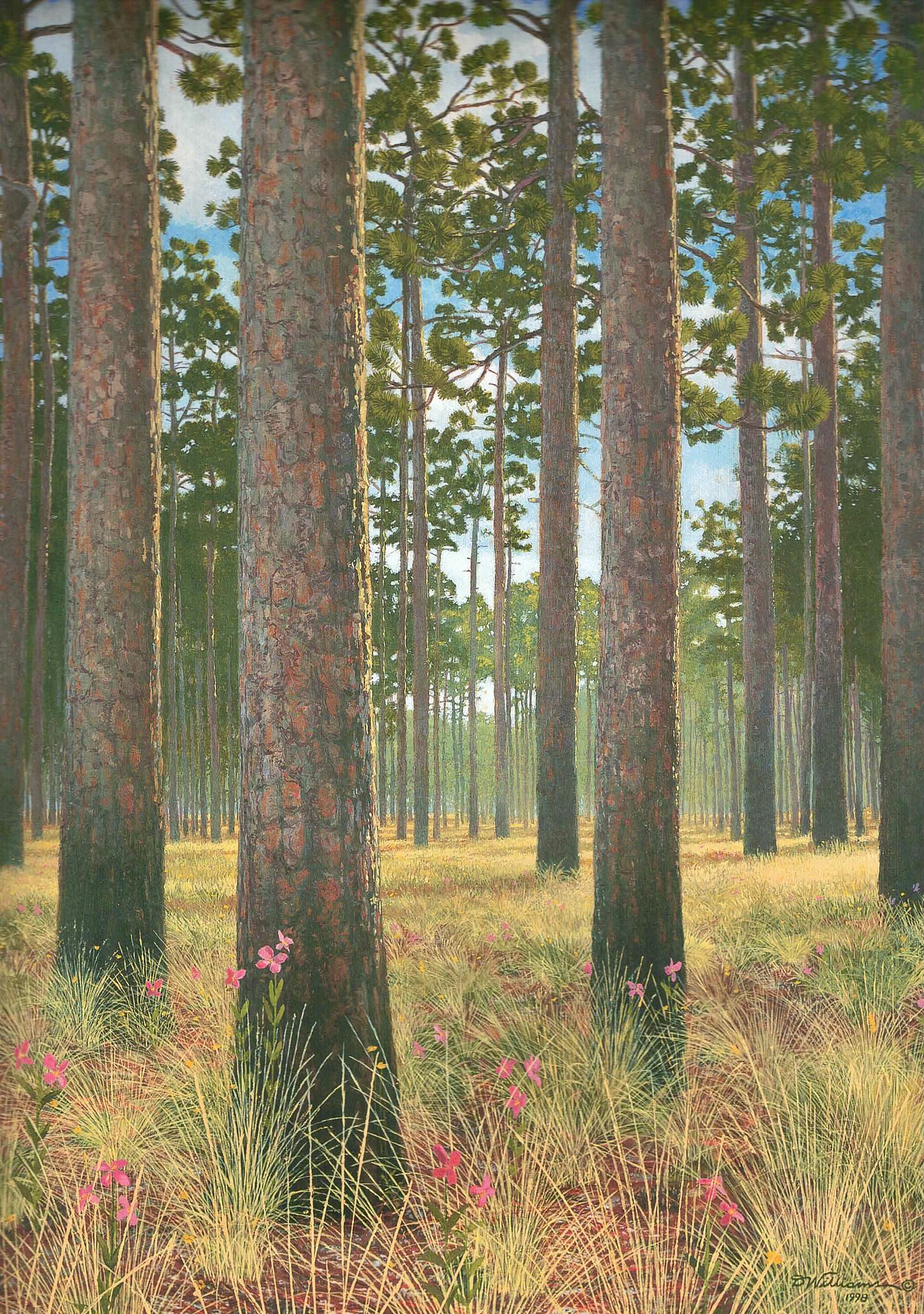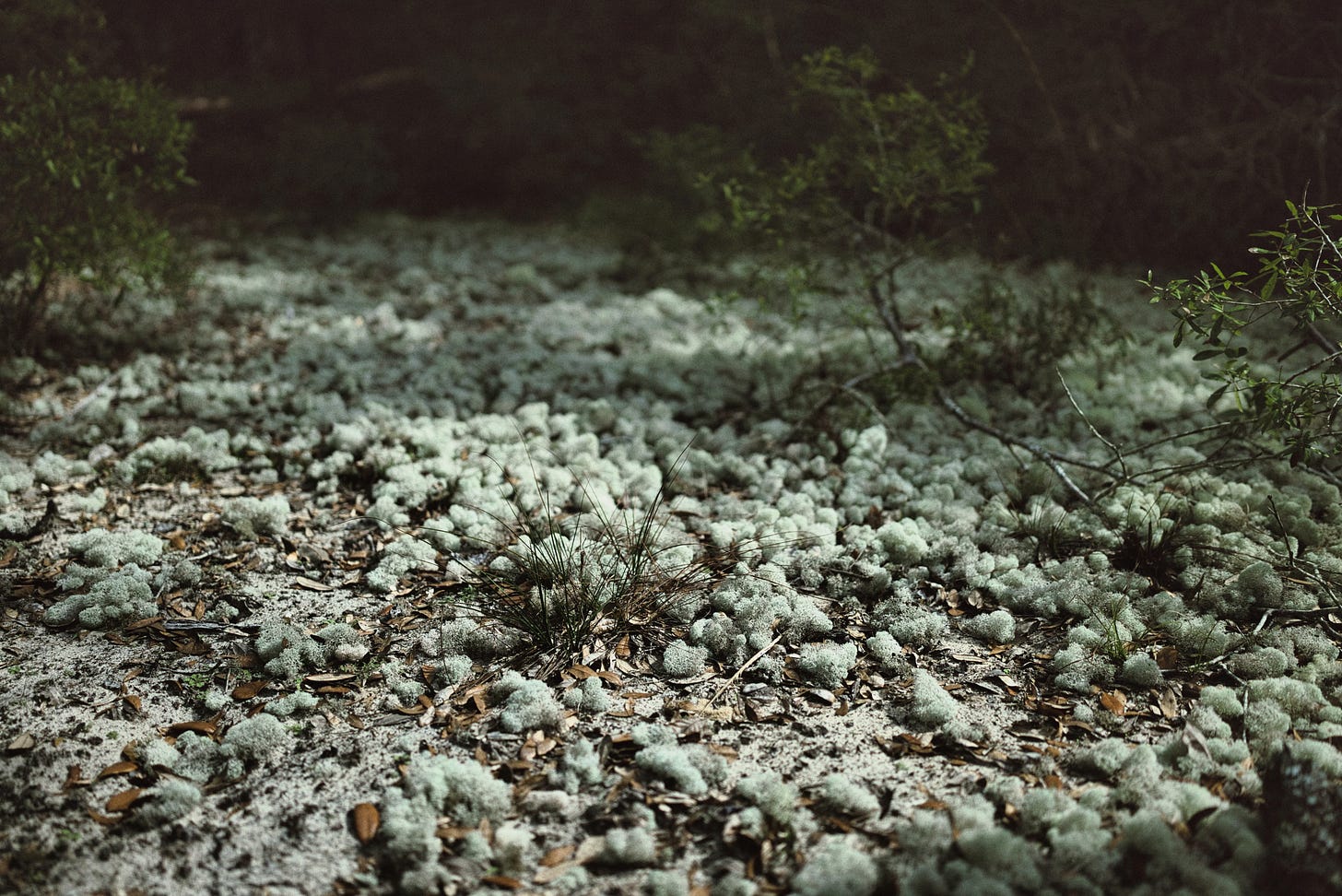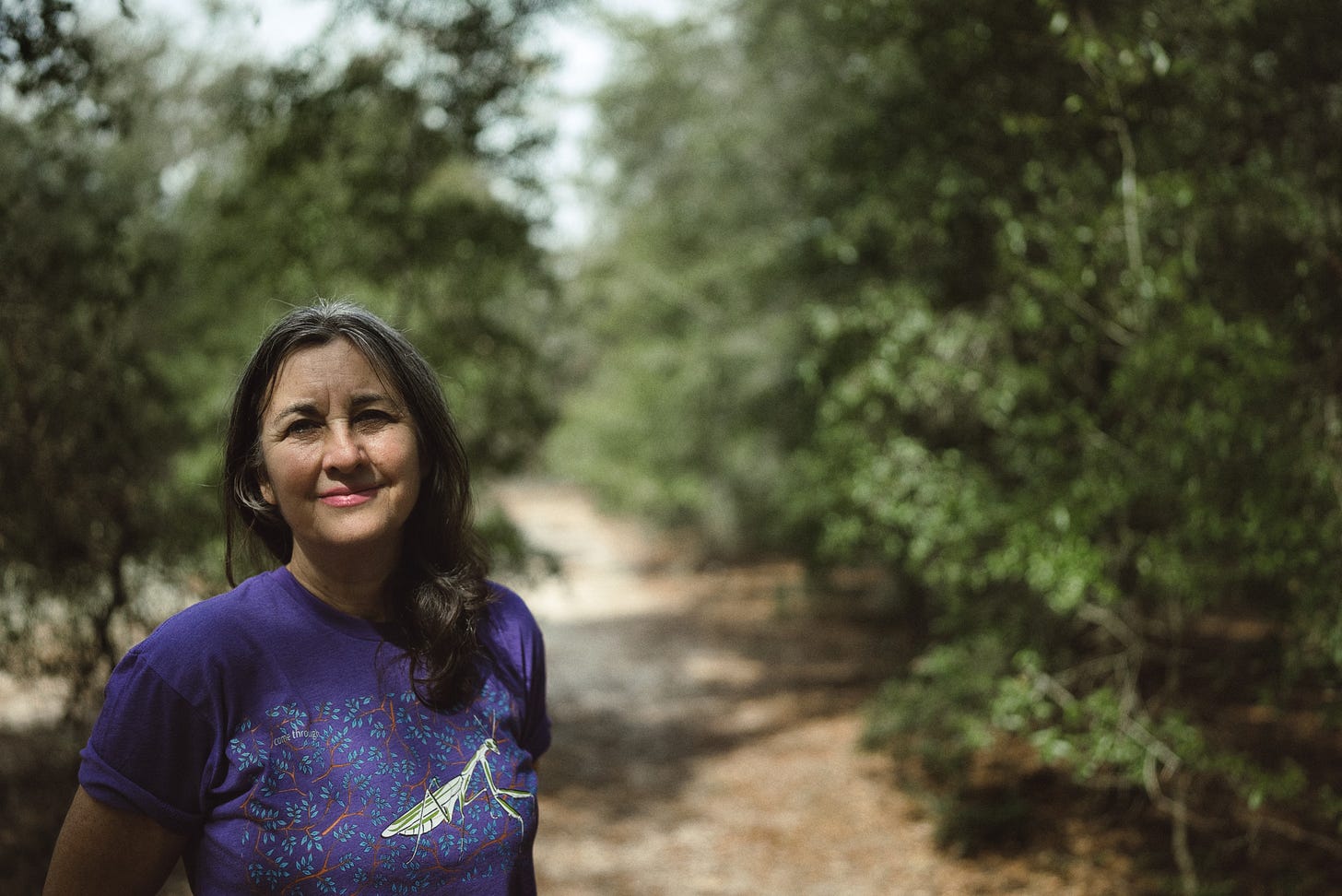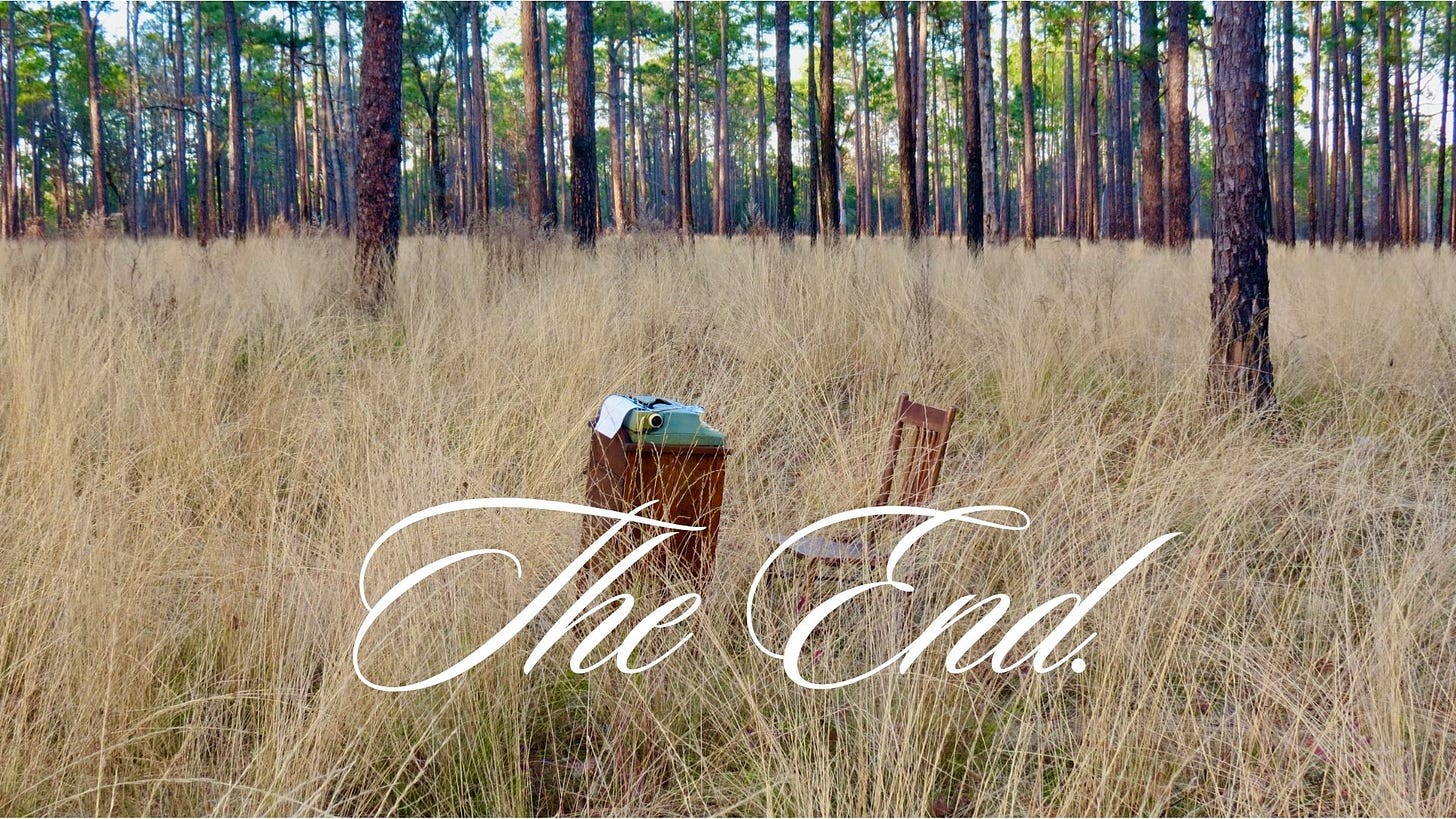Imagine Your Life With Real Choice
This newsletter consists of a single essay. Thank you for being here.
Let Me Reintroduce Myself
I am a nature writer, environmentalist, and place-explorer. Forty years ago, when I was 20 or so, I heard the word “ecosystem” for the first time, and I learned that I’d been raised in an ecosystem called longleaf pine. As I came to understand it, I fell head over heels in love. Very little information was available on the ecosystem except in scientific journals, and in 1995 I began writing what would become an environmental memoir about it. The book published in 1999 as Ecology of a Cracker Childhood, basically a love letter to longleaf pine.
Since then I’ve written or edited a dozen books, and at the heart of each is a hope that we sit up and look around and see that our capitalist lifestyles and mindsets are destroying nature and wildness and the atmosphere, which is of course part of nature.
I returned to my native region in the U.S., and I now live on an organic farm near Savannah, Georgia, 46 acres of green pasture with some strips of woods, a pretty house, some outbuildings, fruit trees, a big garden. Just in case that sounds too idyllic, I’ll add that chickens poop on the porch; summer days can reach 100 degrees and 100% humidity; and the barn is being eaten by termites.
If We Lose the Ability to Choose
I’m still writing books even as I work toward living a land-based, green, mysterious life. I spend every day paying attention, reading, and thinking as I go about my work, attempting to understand the forces upon us 21st-century humans.
I do this for one reason.
I want humans to retain and gain the ability to choose what our lives look like.
Think about this for a moment with me, please.
Capitalism appears to give people choice. We can choose a profession and where to live, which automobile to purchase or whether to buy one at all. We can choose to rent or own, and if own, we can choose house or condo or RV, and we can choose which exact one. We can choose university or not, and which. Which cereal. Which shirt. Which gasoline.
Except that the idea of choice is a shell game.
We appear to have choices, but if you examine them really closely, you see that our choices don’t scale.
Cornflakes versus rice puffs is a choice.
Box cereal versus home-cooked old-fashioned oats is a choice.
Storebought oats versus local oats may be a choice depending on where you live.
On a larger scale, however, regenerative ag is not a choice. Big ag has been chosen for us.
Climate stability is not a choice. Climate chaos has been chosen for us.
Whether you plant a maple or an oak in your yard is a choice. But saving forests is not a choice because industrial clearcutting has been chosen for us.
I’m Tired of Bad Things Being Chosen For Me
Racism is a systemic oppression that has been chosen for us.
The patriarchy is a systemic oppression that has been chosen for us.
The rise of the individual and the fall of community is a systemic oppression that has been chosen for us.
Fascism is a systemic oppression that is being chosen for us.
Poverty is a systemic oppression that has been chosen for many of us.
Empiricism. Colonialism. Fossil fuels.
Orienting to the Computer
I made a choice to become a writer. Being a writer 25 years ago looked very different from being a writer today. Today I’m tethered to my computer, sometimes for all 8 hours in a workday. The computer is a needle in my arm, a glucose drip or an antibiotic solution, and I’m taped to the plastic tubing, and I have to roll the apparatus around with me everywhere I go.
Yes, I could choose to live without it. I resisted a cellular phone for 15 years. I didn’t fly AT ALL for 15 years. Wendell Berry, on his riverside farm in Kentucky, has resisted the computer. And resisting means being increasingly shut out of the very thing you wanted to do with your life. For me, that would mean shut out of writing, out of stories, out of getting my books into print and into libraries, out of helping people, out of having a voice.
Mac versus PC is a choice.
To use or even not use a computer is a choice.
But technology is not a choice. Technology has been chosen for us.
To step out of computerdom is to live an increasingly lonely life. I know many elders who live it. They never signed on to the computer world, and meanwhile the digital trickle of the 1980s became a stream became a river became a gulf stream became a gigantic tide of humanity sunk into their devices, consumed by the “choices” available to them there.
That’s where I’m getting. The choices inside the box seem limitless. Yet we are being robbed of all the choices outside the box.
Most of what we really and truly need is outside the box.

Maybe I’m Wrong
Actually, maybe we do have a choice. Maybe the choice is
doing what you dreamed of doing
even if it means
increasing loneliness, social alienation, and disorientation.
I’m thinking of folks who were raised with square dances and barn-raisings and quilting bees. My mother, for example. She didn’t learn email or Facebook. She doesn’t own a computer. She didn’t buy in. That was a choice—not a choice anybody wants to make, but a choice.

Democracy
It seems to me that democracy—every person gets a vote for representation and our representatives make decisions based on life, liberty, and happiness for all—should be focused entirely on keeping choices open, and also, choice should be scalable.
Not just which thing to buy.
But not to buy at all.
Therein lies the true meaning of liberty, as in “Give me liberty or give me death.” Liberty is the ability to choose.
Really choose. Not fake-choose.
I Want Real Choice
The choice to live a cancer-free, Alzheimers-free, autism-free, addiction-free, trauma-free, war-free life.
The choice to eat nutrient-rich, nontoxic, local food.
The choice to stop our fast slide into climate chaos.
The choice to keep our forests and wild places. To save monarch butterflies. To save pollinators. To save coral reefs. To save polar bears. To save right whales. To save manatees. To save gopher tortoises. To save longleaf pine.
The choice to love wildly, relentlessly, freeingly.
The choice of kindness over cruelty.
The choice to engage with real people in real time in really important ways.
The choice of ceremony.
The choice to sing.
What Does This Mean for You?
The next time you make a choice—any choice—scour the landscape of the decision and ask yourself, “Is this choice masking a lack of choice?”
Imagine a life of real choice. What might that look like for you?
The Only Way
The only way you can enjoy the full spectrum of choice-making is to live a life as far outside the systems of oppression as possible. Refuse racism. Refuse women’s oppression. Refuse to cut a tree. Refuse to get sick. Refuse to stay sick. Refuse chemical food. Refuse fossil fuels.
Poke around outside the box.






Morning Janisse, I believe that introspection arrives when one has time to think - clearly. Time comes with aging, so as we age, we have time to think. Increasingly, with age, I find that I am practicing defense and avoiding offense. Your thoughts in this essay come from thinking and realizing that practicing defense is exhausting for us all. Capitalism is offense, and we eventually realize that capitalism is offensive to our wellbeing. We are forced into an offense lifestyle early in our development. We are taught to acquire stuff to try and crate a fortress of solitude and perceived safety. We try to surround ourselves with sane caring people. But the act of building a life is hard work. There are capitalistic traps that await us. If we are lucky, we find friends and those friends and family members stay close, and we prosper together.
Maintaining one’s health is not easy. Eating healthy food is hard to do. Without means that is obtained through acquisition of stuff, we find that living in our capitalistic society is increasingly a daunting chore. But, we must persist and take care of our friends and family. You are doing this for your literary family by writing and providing access to your work. We appreciate this work. For me, this morning, your essay is breath of warm southern air. Thanks.
Hi Janisse. Thank you for your newsletter. I have two questions:
1. What puts autism in the same category as addiction, trauma, and war?
2. Why would we want a life free of autism?